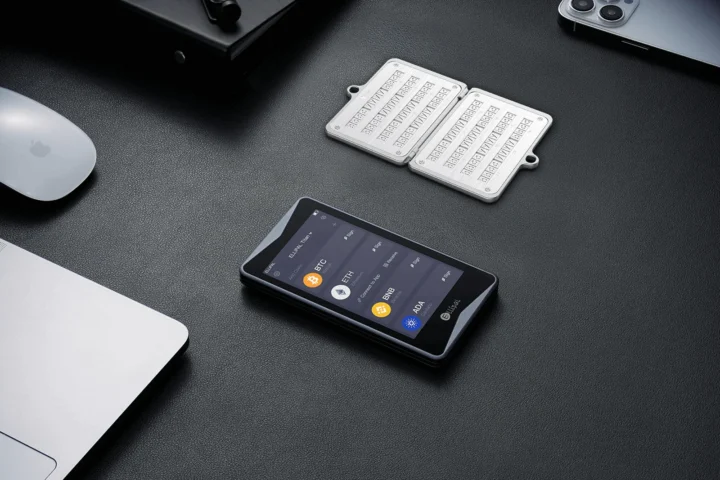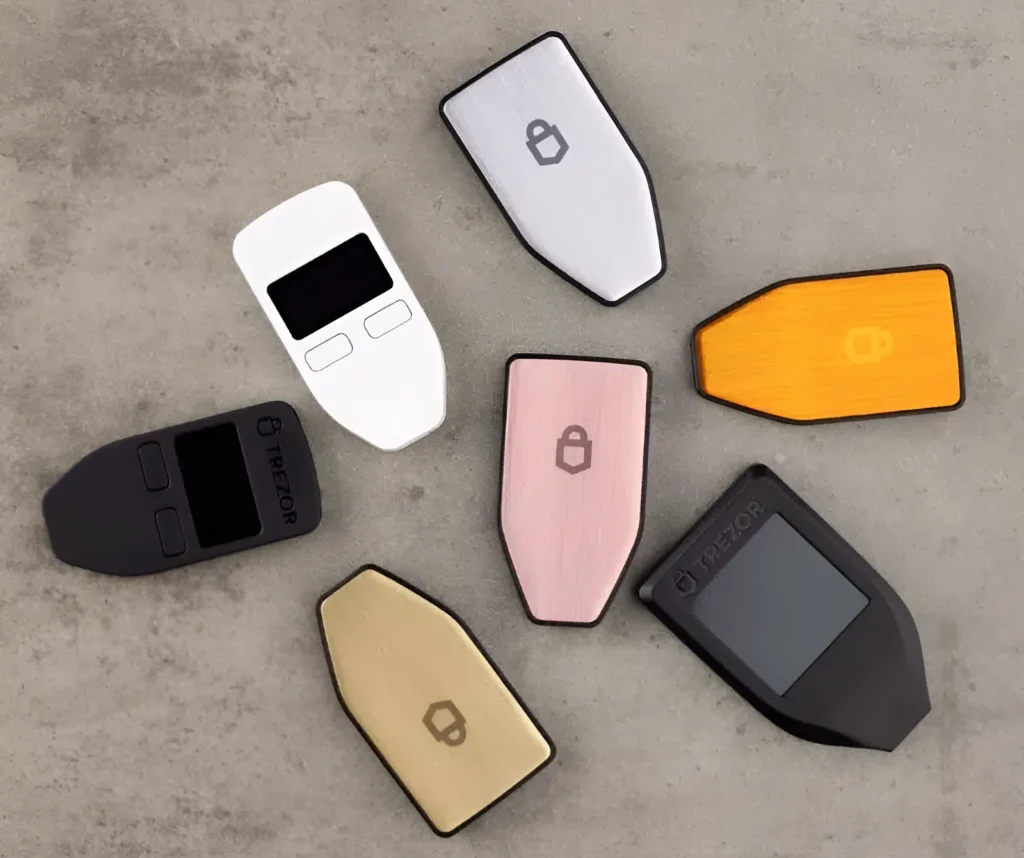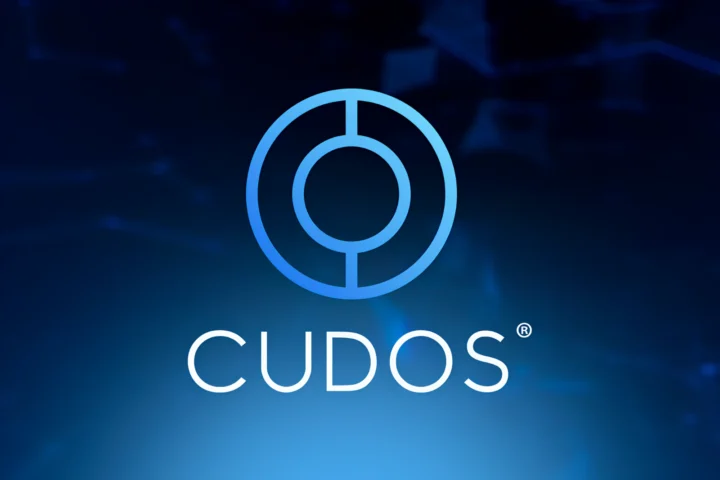A hardware wallet, also known as a cold wallet, is a physical device used to store and manage your cryptocurrency private keys offline. It’s a crucial tool for safeguarding your digital assets, offering a higher level of security compared to software wallets that are connected to the internet. Think of it like a physical vault for your crypto, keeping your keys safe from hackers and other online threats.
What is a Hardware Wallet?
In the world of crypto, where digital assets reign supreme, securing your private keys is paramount. This is where hardware wallets come into play. Essentially, a hardware wallet is a physical device that acts as a secure container for your cryptocurrency private keys, keeping them safely offline and shielded from potential threats. Imagine it as a physical vault for your crypto, providing a robust layer of security against hackers and other digital perils. This offline storage makes it a much more secure option than software wallets, which are often susceptible to online attacks.
Hardware Wallet vs Software Wallet
The main difference between a hardware wallet and a software wallet lies in their security and accessibility. A software wallet, as the name suggests, is a digital application that stores your private keys on your computer, smartphone, or online. While convenient, software wallets are more vulnerable to hacking and malware. On the other hand, hardware wallets are physical devices that keep your private keys offline, making them significantly more secure.
The trade-off is that hard wallets are less accessible, requiring you to physically connect the device to your computer or smartphone to interact with your cryptocurrency. Ultimately, the choice between a hardware and software wallet depends on your individual needs and priorities. If security is your top concern, a hardware wallet is the way to go. But if convenience and ease of access are more important, a software wallet might be a better fit.
Hardware Wallet vs Paper Wallet
Both hardware and paper wallets serve the purpose of storing cryptocurrency offline, but their approaches differ significantly. A paper wallet involves printing your private keys on a piece of paper, essentially creating an offline backup. While extremely secure, it relies on physical security and can be easily lost or damaged. On the other hand, a hardware wallet is a physical device that stores your private keys electronically, providing greater convenience and a more user-friendly interface.
Hard wallets are also more resilient to physical damage and offer additional features like PIN protection and multiple signature capabilities. Ultimately, the choice between a paper wallet and a hardware wallet depends on your individual preferences and risk tolerance. Paper wallets are a good option for long-term storage, while hard wallets offer more flexibility and convenience for day-to-day use.
Hardware Wallet vs Cold Wallet
The terms “hardware wallet” and “cold wallet” are often used interchangeably, but there is a subtle distinction. “Cold wallet” is a broader term that encompasses any method of storing cryptocurrency offline, including hardware wallets, paper wallets, and even physical storage devices like USB drives. A hardware wallet is a specific type of cold wallet that is a physical device designed specifically for storing and managing cryptocurrency. It’s essentially a specialized cold storage solution. So, while every hardware wallet is a cold wallet, not every cold wallet is a hardware wallet. The distinction lies in the level of dedicated functionality and security features offered by a hard wallet.
How Does a Hardware Wallet Work?
Hardware wallets function by securely storing your cryptocurrency private keys offline, ensuring that they are protected from digital threats. When you initiate a transaction, you connect your hardware wallet to your computer or smartphone. The wallet then generates a unique signature for the transaction using your private keys, which is then broadcast to the blockchain.
The transaction is only authorized if the signature matches your private keys, ensuring that only you can control your funds. Many hard wallets feature a small screen and buttons that allow you to confirm transactions, adding an extra layer of security. This process ensures that your private keys remain safe and inaccessible to unauthorized individuals. The offline nature of hard wallets, combined with their secure design and authentication mechanisms, makes them a highly effective way to protect your digital assets.
Types of Hardware Wallets
Hardware wallets come in various shapes and sizes, each with its own set of features and benefits.
Best Hardware Wallet for Cryptocurrency
The “best” hardware wallet for cryptocurrency depends on your specific needs and priorities, such as budget, security features, ease of use, and supported coins. Some popular options include the Ledger Nano X and Ledger Nano S Plus, which offer a balance of security and user-friendliness. For those seeking a premium experience, the Ledger Stax is a great choice.
Trezor Model T and Trezor Model One are also highly regarded, offering robust security and a wide range of supported cryptocurrencies. If you’re on a budget, SafePal S1 provides a cost-effective solution without compromising on security. Ultimately, research different hard wallet options, compare their features and pricing, and choose the one that best aligns with your individual requirements.
Best Hardware Wallet for Bitcoin
When it comes to safeguarding your Bitcoin, choosing the right hardware wallet is crucial. Several options excel in Bitcoin support, each with its own strengths. The Trezor Model T is a popular choice, known for its robust security and compatibility with a wide range of Bitcoin-related applications. The Ledger Nano X, a versatile hardware wallet, also offers excellent Bitcoin support.
For a more specialized Bitcoin-focused wallet, the BitBox02 stands out. It’s designed specifically for Bitcoin and offers advanced features for Bitcoin enthusiasts; Ultimately, the best hard wallet for Bitcoin depends on your individual needs and preferences. Consider factors like security features, user experience, and price when making your decision.
Best Hardware Wallet for Beginners
Navigating the world of hardware wallets can seem daunting for newcomers. Fortunately, several models are designed with beginners in mind, offering user-friendly interfaces and straightforward setup processes. The Ledger Nano S Plus is a popular choice, known for its intuitive design and ease of use. It’s also relatively affordable, making it an attractive option for budget-conscious beginners.
The Trezor Model One, another highly-rated option, is also known for its user-friendly interface and comprehensive documentation. Both models offer strong security features, ensuring the safety of your digital assets. When choosing a hardware wallet for beginners, prioritize simplicity and intuitive design to make the experience as seamless as possible.
Best Hardware Wallet for Experienced Users
Experienced cryptocurrency users often demand more advanced features and security options from their hardware wallets. Some models cater specifically to these needs, offering greater flexibility and control over their digital assets. The Trezor Model T stands out as a top choice, providing a large touchscreen display for navigating menus and confirming transactions. It also supports advanced features like multi-signature transactions and a built-in recovery seed storage.
For those seeking a premium experience, the Ledger Stax offers a sleek design and advanced features like a built-in NFC chip for contactless transactions. These wallets cater to the more sophisticated needs of experienced users, providing advanced security and control over their cryptocurrency holdings.
Best Hardware Wallet for Cold Storage
Cold storage is the gold standard for securing your cryptocurrency long-term, and certain hardware wallets excel in this area. The ELLIPAL Titan is a top contender, known for its air-gapped design, which completely isolates it from the internet. This feature makes it exceptionally resistant to hacking and malware. The Keystone Pro is another excellent option, designed with cold storage in mind. It features a secure element chip and a tamper-resistant design, ensuring the safety of your private keys.
For those seeking a balance of cold storage security and user-friendliness, the Ledger Nano X and Ledger Nano S Plus offer robust features for long-term storage. When choosing a hard wallet for cold storage, prioritize air-gapped design, tamper-resistant construction, and advanced security features to safeguard your digital assets over the long haul.
Hardware Wallet Features and Considerations
Before purchasing a hardware wallet, consider these key aspects to find the best fit for your needs.
Hardware Wallet Price
Hardware wallets come in a range of prices, reflecting their features and security levels. Entry-level models like the Ledger Nano S Plus and Trezor Model One are generally priced between $50 and $100, offering a balance of security and affordability. Mid-range options, such as the Ledger Nano X and Trezor Model T, typically cost between $100 and $200, offering enhanced features and a more premium experience.
High-end hardware wallets, like the Ledger Stax and ELLIPAL Titan, can cost upwards of $200, offering advanced security features and a more robust build. Consider your budget and the level of security you require when choosing a hardware wallet, as price can vary significantly depending on the features and brand.
Hardware Wallet Security
Hardware wallets are designed with security as their primary focus, offering several layers of protection for your cryptocurrency. They typically feature secure element chips, which are tamper-resistant microchips that store your private keys securely. Many hardware wallets also employ PIN protection, requiring you to enter a unique code before accessing your funds.
Some models also support multi-signature transactions, which require multiple parties to authorize transactions, further enhancing security. Additionally, the offline nature of hard wallets makes them highly resistant to hacking and malware, as they are not connected to the internet. While no security system is foolproof, hardware wallets offer a significantly higher level of protection than software wallets, making them an excellent choice for safeguarding your digital assets.
Hardware Wallet Compatibility
Hardware wallets are not all created equal when it comes to compatibility. Some wallets support a wide range of cryptocurrencies and blockchains, while others are more specialized. Before choosing a hardware wallet, consider the cryptocurrencies you want to store and ensure that the wallet supports them. Check the manufacturer’s website or documentation for a list of compatible coins and blockchains.
Some popular hard wallets, such as Ledger Nano X and Trezor Model T, offer broad compatibility, supporting thousands of cryptocurrencies. However, others, like the BitBox02, are specifically designed for Bitcoin and may not support other cryptocurrencies. Choose a hardware wallet that aligns with your cryptocurrency portfolio and future investment plans.
Hardware Wallet Usability
While hardware wallets are known for their security, usability is also an important factor to consider. Some models are more user-friendly than others, offering intuitive interfaces and straightforward setup processes. The Ledger Nano S Plus and Trezor Model One are known for their simplicity, making them excellent choices for beginners.
Models like the Ledger Nano X and Trezor Model T offer a more advanced user experience, with larger screens and more comprehensive features. Ultimately, choose a hard wallet that you find comfortable and easy to use, as this will make managing your cryptocurrency more enjoyable. Consider factors like screen size, button layout, and the intuitiveness of the software interface when evaluating usability.
Top Hardware Wallet Brands
Several reputable brands dominate the hardware wallet market, each with its own strengths and offerings.
Ledger Hardware Wallets
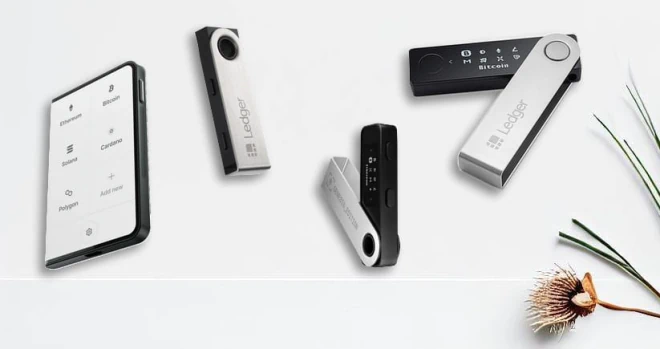
Ledger is a well-established brand in the hardware wallet space, known for its secure and user-friendly products. Their flagship models, the Ledger Nano X and Ledger Nano S Plus, are highly regarded for their balance of security, usability, and compatibility. The Ledger Nano X offers a larger screen, Bluetooth connectivity, and a more premium design, while the Ledger Nano S Plus provides a more affordable option with a similar level of security.
Ledger also offers a more premium model, the Ledger Stax, featuring a sleek design and advanced features like NFC connectivity. Ledger hard wallets are compatible with a wide range of cryptocurrencies and blockchains, making them a popular choice for both beginners and experienced users.
Trezor Hardware Wallets
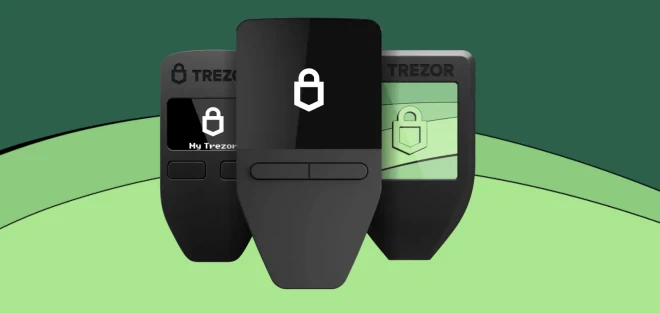
Trezor is another leading brand in the hardware wallet market, known for its commitment to open-source software and robust security. They offer two main models: the Trezor Model T and the Trezor Model One. The Trezor Model T is a premium option, featuring a large touchscreen display, advanced features like multi-signature transactions, and a built-in recovery seed storage.
The Trezor Model One, a more affordable option, offers a smaller design and a more basic interface but still provides a high level of security. Both models are compatible with a wide range of cryptocurrencies and blockchains, making them a popular choice for both beginners and experienced users. Trezor hardware wallets are highly regarded for their security, reliability, and user-friendliness.
SafePal Hardware Wallets
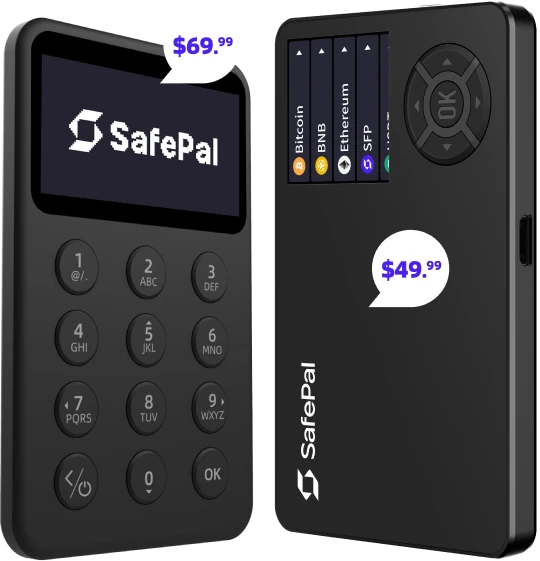
SafePal is a relatively newer brand in the hardware wallet market, but it has quickly gained popularity due to its focus on affordability and user-friendliness. They offer several models, including the SafePal S1 and SafePal S1 Pro. These wallets are known for their compact design, intuitive interface, and support for a wide range of cryptocurrencies.
SafePal also offers a mobile app that allows you to manage your crypto and interact with decentralized applications (dApps). While they may not have the same level of brand recognition as Ledger or Trezor, SafePal hardware wallets offer a compelling combination of security, affordability, and usability, making them a solid choice for both beginners and experienced users.
Other Popular Hardware Wallet Brands
Beyond the major players like Ledger, Trezor, and SafePal, several other hardware wallet brands offer compelling options for securing your cryptocurrency. ELLIPAL is known for its air-gapped hardware wallets, such as the ELLIPAL Titan, which provide a high level of security by completely isolating them from the internet.
SecuX offers a range of hardware wallets, including the SecuX V20, which features advanced security features like a fingerprint sensor and a tamper-resistant design. Other notable brands include KeepKey, which is known for its user-friendly interface and compatibility with various platforms, and the Coldcard Mk4, which is a popular choice for Bitcoin enthusiasts due to its focus on security and privacy. When exploring these lesser-known brands, research their features, security measures, and user reviews to determine if they align with your needs.



